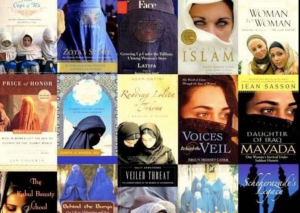Akram’s Razor represents my rather tardy foray into the exciting and occasionally narcissistic world of blogging.
What’s “Akram’s Razor?” you might ask.
The simplest answer is that “Akram” is my middle name–I sometimes go by this name among Muslims–and that I aspire to slice through the layers of misunderstanding and misinformation on these topics like, you guessed it, a razor.
But I like to think there’s something more profound to it than that. The title is a play on words and an allusion to the famous philosophical principle known as Occam’s Razor, which holds that, when faced with multiple explanations for something one does not understand one is to prefer the simplest explanation until new evidence gives you reason to choose a more complex explanation. In other words, you should choose the simplest answer that explains all phenomena that you’re aware of.
This principle is viewed by many historians as a foreshadowing of the modern Scientific Method (which is often posited as being in opposition to faith), but I don’t as a Muslim see this concept as being inherently contrary to religious faith. To get at the heart of the matter, we should look at a quote from another famous rationalist, Thomas Paine. He declared that no religion “that shocks the mind of a child” could be true.
Now, there are certain fundamental moral and existential truths about the sacred role of love, peace and tolerance in life which though they are at the heart of the major religions somehow get woefully neglected by people who call themselves Christians, Jews, Muslims, etc. When we roll our jaded eyes when we hear some “idealist” preaching about the plight of the homeless, the continuing legacy of racism in American society, or the incredible suffering caused around the world by “globalization”, …–That kind of talk is just so cliché, so painfully obvious, isn’t it?–we dodge the simple but perhaps best explanations for modern problems, preferring instead complex theories which confuse issues and ultimately diffuse responsible so widely that no one is responsible for anything that happens.
Also, as a Muslim American looking at contemporary Islamic thought, I find Occam’s reminder to be especially apropos, as I think there is a tendency of many Muslim intellectuals and self-professed traditionalists to engage in tortuously complex reasoning on important issues–especially gender–to avoid admitting the obvious, to avoid legitimizing widespread “liberal” or “modern” (yet, I would contend, at bottom entirely Islamic) values about justice and equality. I think these values are hardwired in people, but they can be eclipsed by religious or cultural indoctrination (which is what I think Paine was referring to).
That’s what Occam’s Razor means for me as a Muslim and as a humanist. Sometimes, the most fruitful approach to vexing moral dilemmas and theological paradoxes is to be found in heeding the murmurs of the heart rather than the intricate arguments of theologians or jurists.











